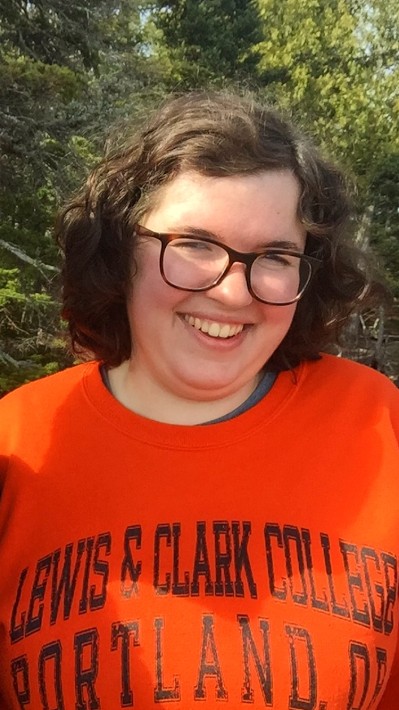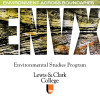ENVS Blog: Teaching Through AmeriCorps

Rebecca Kidder ’16
My college years culminated a year ago in two bachelor’s degrees and a seventy-something page long thesis, in which I studied the relationship between students’ home and school physical environments with how they experienced their transition to college. It was awesome to write–but, like so many others, I found myself graduating without a solid idea of what it was I wanted to do.
Nonetheless, I graduated. I spent a month visiting national parks in the western US. I moved back home and applied for a bunch of jobs; some directly tied to my degrees and others with a bit more convoluted of a connection. Eventually, I landed on a position with AmeriCorps, working as a reading tutor in Minneapolis schools. I’ve spent the past year in a kindergarten classroom on the north side of the city, working with kids one-on-one and in small groups to teach them basic literacy skills.
While it may seem like this position isn’t directly connected to environmental studies, I constantly use my degree. It has given me the ability to not only recognize but to think critically about the many environments that surround me. I constantly think about how I can best help kids thrive within the school environment. I think about the political environment and how it affects my students in ways that I will never fully understand. I think about the kids’ home environments and how it shapes their behaviors at school, and I think about the environmental justice surrounding the physical environment of North Minneapolis. My students have less access to parks and green space, breathe more polluted air, and live closer to more Minnesota Pollution Control Agency clean-up sites than kids who live just a few miles away.
And my degree is not just present with these thoughts: I use it when I work with a student exhibiting challenging behaviors, “zooming out” to look at the student as a whole to try and figure out what’s going on. I use it when I explain to a kid why it’s important to learn how to read, connecting the skill to their interests. It turns out, life is pretty darn interdisciplinary.
So now here I am, moving forward. My position ends with the school year in June, and I’ve gotten a seasonal position for the summer with a regional park system as a naturalist (the connection here to my degree is a bit more obvious). I’m hoping to eventually go to graduate school to get a master’s in elementary education alongside a teaching license. I’ll be entering a complicated world of education as a teacher; one where I hope to incorporate environmental and outdoor education into my classroom, while juggling state standards and ever decreasing funding with managing classroom behaviors and rising class sizes. If I’ve learned one thing this year, it’s that the classroom environment is one of many environments that shape a kid’s life; I look forward to the challenges and opportunities to actually help create such a space.
Environmental Studies is located in room 104 of Albany Quadrangle on the Undergraduate Campus.
MSC: 62
email envs@lclark.edu
voice 503-768-7790
Symposium Advisor Jim Proctor
Environmental Studies
Lewis & Clark
615 S. Palatine Hill Road
Portland OR 97219
More Stories

Farming, Oceanography, and the Arctic
Rylie Neely ’20 shares how she continued to use her ENVS education during an unplanned career pause due to Covid.
2025 Project Descriptions for the Rogers Program
Summer science research opportunities

Finding Paths
ENVS alum, Julian Brastow ’22, describes his initial job search after graduating from LC.

Place-Based Learning
From Trash to Treasure: Creating Art From Waste
Cara Tomlinson’s Art and Ecology class uses waste materials from around Portland to create beautiful and meaningful works of art. This course offers a fresh approach to creative practice, merging art and ecology to help students respond to the climate crisis, explore the agency of materials, and build connections to place.
